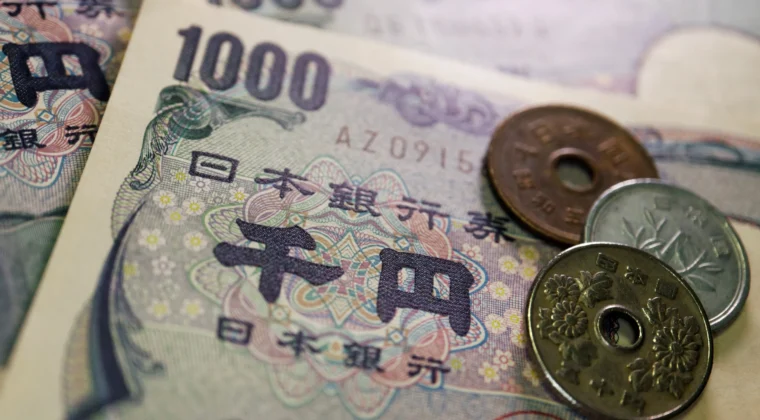-
- Trading Platforms
- PU Prime App
- MetaTrader 5
- MetaTrader 4
- PU Copy Trading
- Web Trader
- PU Social
-
- Trading Conditions
- Account Types
- Spreads, Costs & Swaps
- Deposits & Withdrawals
- Fee & Charges
- Trading Hours


Key Takeaways:
*Japan’s CPI beat the market expectations, sparking BoJ Hawkish expectations.
*Market uncertainties arose after Trump’s tax bill passed in the House of Representatives.
The Japanese Yen extended its gains this week, underpinned by a resurgence in safe-haven flows as global uncertainties escalate. Investor sentiment turned risk-averse following the passage of President Donald Trump’s tax bill by the U.S. House of Representatives on May 22, 2025, which intensified concerns over Washington’s fiscal trajectory. With U.S. national debt ballooning to $36.2 trillion, doubts over the government’s long-term debt sustainability triggered a shift into safer assets, boosting demand for the Yen.
Geopolitical risks further supported the Yen. Discussions at the G7 summit centered on tightening sanctions against Russia, including a proposed reduction in the price cap on Russian oil. The potential for retaliatory actions and energy market instability added to the appeal of Japan’s currency as a haven.
Domestically, Japan’s core Consumer Price Index rose to 3.5% in April, fueling speculation that the Bank of Japan may lean toward policy tightening after years of ultra-accommodation. Expectations of a more hawkish BoJ provide a secondary tailwind for the Yen, enhancing its attractiveness even as global yields fluctuate.
While short-term volatility remains, the Yen appears poised for sustained strength amid ongoing macro and geopolitical headwinds. Investors are advised to remain vigilant and position accordingly as risk-off sentiment continues to drive capital flows.
The USDJPY pair has come under renewed selling pressure, sliding over 1% this week as bearish momentum continues to dominate. The move marks a notable shift in sentiment, with the pair now approaching a critical support level near the 142.00 mark. A potential technical rebound could occur if the pair finds a solid footing at that threshold.
Momentum indicators continue to flash bearish signals. The Relative Strength Index (RSI) remains subdued below the 50 level, while the MACD extends its decline further below the zero line—both underscoring persistent downside pressure.
Unless the pair decisively holds above the 142.00 support, further weakness cannot be ruled out. However, any signs of stabilization at this level may invite short-term dip-buying interest, offering temporary relief within the broader downtrend.
Resistance Levels: 146.00, 148.10
Support Levels: 141.90, 140.30


Trade forex, indices, metal, and more at industry-low spreads and lightning-fast execution.
Sign up for a PU Prime Live Account with our hassle-free process.
Effortlessly fund your account with a wide range of channels and accepted currencies.
Access hundreds of instruments under market-leading trading conditions.